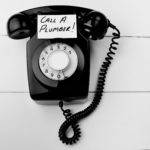In August 2018, the prompt actions of Meri Ann Rush in Thermopolis, Wyoming at a local demolition derby event very likely saved a number of lives. She acted to evacuate hundreds of fans after having received a warning of severe thunderstorms. They escaped 60 mph winds, moderately sized hailstones, and many lightning strikes.
When a storm comes, you need to make sure you’re ready. Stay safe during a hurricane and be prepared for anything by following these 5 top tips.
Is That a Hurricane?
When a tropical cyclone has surface winds exceeding 74 mph it is called a hurricane. These weather events are potentially very destructive both to property and lives.
Hurricanes commonly start out in the Atlantic Ocean, Caribbean Sea, in the Gulf of Mexico, and in the eastern part of the North Pacific Ocean.
They are given a name by the World Meteorological Organization and referred to by these names in the media. The season for hurricanes is June to November. You can monitor the conditions yourself with the best home weather station.
1. Always Prepared
If you live in a potential hurricane-prone area, you should have a disaster kit ready for use at the drop of a hat. The kit should contain water containers to store a gallon a day of fresh water for each person in your household. You should have stores for three days.
You should also have stores of food and a can opener for three days. Have flashlights and suitable batteries to power them. Have an extensive first aid kit, help whistle, plastic garbage bags, a few basic tools all stored in a watertight container.
Have a watertight container to store a cell phone and back-up charger, any required medications and somewhere to secure critical documents.
If you are in a hurricane prone area you should prepare your home for the worst. Have shutters or plywood boards ready to put over windows. Have straps to secure your roof installed.
Consider installing a safe room.
2. What’s the Plan?
Once you know a hurricane is on its way you need a plan and everybody needs to know their part in it. Make decisions about what everybody is to do and when they are to do it. This should include what they should do if they get separated.
Keep informed about local conditions and advice by radio, TV or internet. When conditions get worse it may be that radio is the only reliable source of information.
3. Hurricane Is Coming
At the first hint of a hurricane make sure you have full gas tanks. Gas is among the first resource to go scarce in the event of a hurricane.
Make your property secure with shutters and roof straps. If you have a boat or vehicles, secure them. Remove any branches or trees that might fall and cause damage.
Fill your fresh water containers and also fill the bathtub. Get clothes, food and other suppliers in place. Make sure everybody is where they should be to be safe.
Secure your property and any loose items such as lawn furniture, awnings, and trash containers. If the authorities ask you to turn off utilities do this as well as disconnecting any propane tanks. You may be able to keep freezer contents frozen by keeping the door shut.
4. When Should You Evacuate?
If the authorities instruct you to evacuate, do what they say. The authorities are unlikely to want to mobilize people onto the roads away from their homes unless they really have to.
If your accommodation is not substantial enough to withstand a hurricane, leave it. Temporary structures and mobile homes are unsafe in hurricane conditions. High rise accommodation will experience higher wind speeds than ground level accommodation and so it may be wise to evacuate to a ground level location.
Floods can also accompany hurricanes. If you are on a floodplain, the coast or near inland water you may be in danger of flooding. If this is the case you may need to evacuate.
5. During a Hurricane
Stay inside. Keep away from potential flying glass such as windows. It’s best to identify a safe area in your house and stay in it until the hurricane has passed.
Brace external doors and close internal doors. Take refuge.
If you are at risk of losing power, it’s best to switch off appliances to protect them from damage. Air conditioners, water heaters, computers, and other appliances should all be powered down. In the event of flood risk go to your main breaker switch and switch off the electricity supply.
Well Done, You’re Ready
Wait it out.
Stay inside. Remember a temporary period of quiet may just be the eye of the storm and not yet safe to emerge.
Don’t use electrical items that might attract lightning. Don’t use your telephone or electric shower.
The Aftermath
After the hurricane has passed the period of danger has not. There may be downed electrical power lines or unstable buildings. Flooding has many risks associated with it too.
Wait until the authorities have announced an all clear. Keep away from cables, and especially keep clear of water with power lines near it. Report any hazards to utility companies or the police.
Be cautious of buildings, roads, bridges, and trees in case they have been damaged. If you need to evacuate after the hurricane then go to public shelters where you can get information and suitable care.
Recovery
Recovery from a hurricane can be a slow process. Not only are their physical issues but there may be medical and even psychological ones to contend with. It’s not just what happens during a hurricane that causes harm but there is help available.
Secure your home for winter with these great tips.

